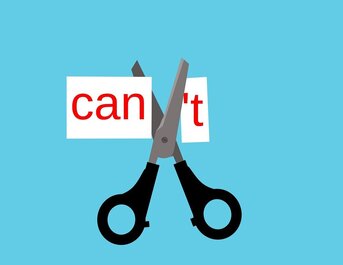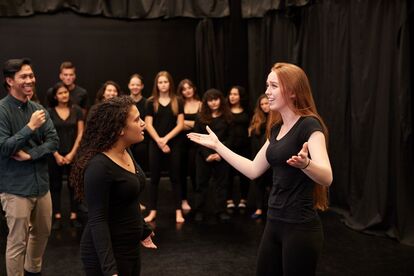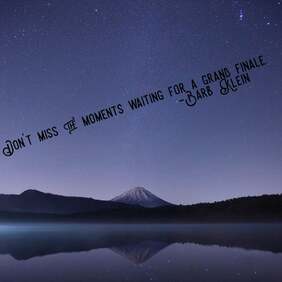 Image by Kevin McIver from Pixabay
Image by Kevin McIver from Pixabay Some events are so impactful that they create a distinct before and after in the timeline of your life. The events that unfolded in the second half of 2021 forever altered the landscape of my existence. Within just 6 months I was diagnosed and treated for breast cancer, including a double mastectomy, my divorce was finalized (resulting in the loss of crucial medical insurance which I needed for future treatments), and my 21-year-old daughter Helanna passed away from an overdose.
I realize this is a grim way to start a blog post, but surprisingly, the intensity of those experiences led me to a profound perspective shift and opened my life to new possibilities. Has it been easy? No! But I want you to know what’s possible, even after facing such huge challenges.
When I was in high school a friend and I were sitting on the front of a pontoon boat enjoying the refreshing breeze as her father was driving us to a restaurant on the lake. A water skier made a massive wave that caused the front of our boat to dip in the water. My friend and I were deep in the lake before we knew what happened. At first, I panicked, disoriented because I didn’t have time to take a deep breath. Then I stilled myself and waited to see if I floated up. Once I figured out which way was up, I also noticed the sunlight, and I swam toward it as fast as I could so I could take a deep breath and fill my lungs with oxygen again.
Unlike this boating accident, the events of 2021 left me disoriented with no buoyancy to help me float. There was no light to guide me to the surface so I could breathe again. I felt like I had lost everything. My mind relentlessly told me everything I had worked on for the first 49 years of my life had failed and I had no future. The grief from breast cancer, divorce, and losing Helanna sometimes felt like drinking from a fire hose, flooding me and taking me down.
I consider myself to be resilient, and before this time, when an area of my life collapsed, I built it back up better and stronger, but losing my daughter tested my strength in every way imaginable. I couldn’t imagine ever having the strength to face a future without her, so the painful thoughts intensified, becoming more and more believable.
I also started noticing memories that had not bothered me before my daughter passed away suddenly became traumatic, and I couldn’t understand why. After struggling on my own for a while, I sought EMDR (Eye Movement Desensitization and Reprocessing) therapy to help me process my traumatic memories. EMDR encourages the patient to briefly focus on the trauma memory while simultaneously experiencing bilateral stimulation (typically eye movements), which reduces the vividness and emotion associated with trauma memories, calming the nervous system.
Trauma is not only about the event itself. It is also about what happens inside us in response to the event. Trauma can be caused by any event that we experience as emotionally distressing, not just life-threatening events. The loss of my daughter made me feel very unsafe. I became preoccupied with thinking about the other horrible things that could happen. The more I thought about bad things happening the more unsafe I felt. It was a vicious cycle.
Trauma's impact extends beyond the event itself and infiltrates our thoughts, emotions, and memories. Our brains work in a think-feel-act cycle. We have a thought. That thought releases chemicals that we feel as an emotion in our body, and emotions lead us to action. Beliefs come from thoughts we think repeatedly. Our thoughts and beliefs affect our memories because our memories aren’t fixed. Each time we retrieve a memory we can distort it.
Over time a memory can become more about your thoughts and judgments about the memory than the actual memory. When trauma is involved, we distort our memories even more in what is called memory amplification. We change our recollection of our past, essentially changing our past. In this case we are making the past worse than it was. Changing our past affects how we perceive the present moment, and it can change our future because of the state of being we’re creating in this process.
This explains why my memories that weren’t traumatic previously became traumatic after my daughter passed away. Every time I retrieved those memories, I loaded the trauma with my judgments and feelings of guilt, grief, despair, hopelessness, and shame. I wasn’t aware I was distorting my memories until I started sorting it all out with EMDR.
The original feelings associated with certain memories had been written over, as if I had made changes to a Word document, and saved a newer, harsher version. The more times I retrieved the memories, the more painful they got. I was changing the feelings associated with the memories and what I made them mean about me. I started seeing myself differently – it was painful and it felt very true.
After an EMDR session where my counselor helped me peel away the layers of a highly charged memory of a conversation with my daughter, a lightbulb struck! For the first time I saw how I had changed my memories. The main emotion I had been swimming in with my memory before EMDR was shame. After EMDR, that feeling transformed to love for my daughter. Suddenly I could see the real picture and I could feel being with my daughter in that heartfelt moment again. I felt proud of how I supported her during that conversation, and I deeply felt the love between us as we talked.
This is where I got curious. If I had changed my past, present, and future by changing my memories in a way that was hurting me, maybe I could harness that power to create a positive healing experience instead. When I retrieve memories now, I include loads of compassion and understanding so I don’t keep traumatizing myself. Compassion and understanding are keys to unlocking healing.
My new perspective has me thinking about the possibility of building a beautiful future. I don’t know what my future will look like yet, but opening to the possibility that it will be filled with love and fulfillment rather than being dominated by pain and loss is the first step to creating it.
It’s not about sidestepping the pain of the void left by my daughter’s physical absence from my life. It’s about living with all that’s here and all that’s possible. I have an ache in my heart for my daughter and my life is beautiful because of my deep appreciation for every joyful experience and every moment with the people I love.
Want to hear more about this experience? Listen to Heather's podcast here!
Here's a meditation I recorded to go along with this post: Tending Your Heart. Lean in. You deserve your own tender care.

Heather offers a program for parents that is compassionate, family-centered, based on science, and teaches parents how to create their own peace of mind whether their child is in recovery or still using substances. She believes parents have more power than they realize and the best gift they can give their child is a healthy parent.
When Heather is not helping other parents, she enjoys spending time in nature with her dogs, going to sound baths on the beach, traveling, and creating beautiful memories with friends and family.
You can find out more about Heather and her offerings by visiting Heather Ross Coaching.
Here's Heather's free "A New Perspective about Enabling"
Listen to the Living with Your Child's Addiction Podcast









 RSS Feed
RSS Feed